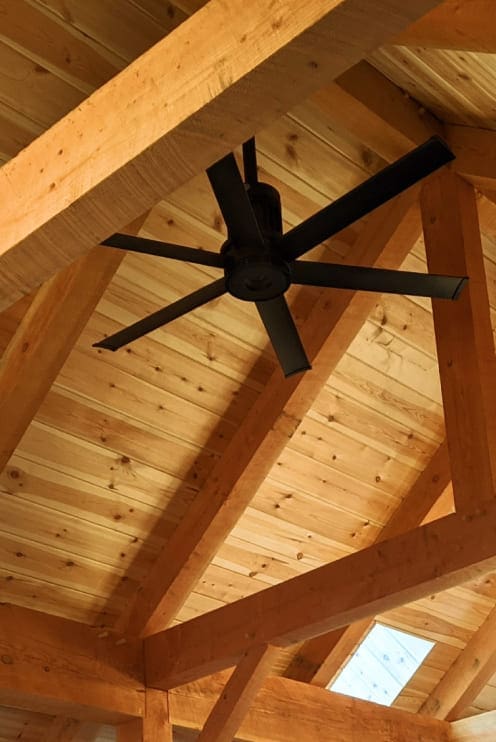Electricians play a critical role in keeping our homes and businesses running smoothly. Whether it’s fixing a faulty outlet, wiring a new building, or installing energy-efficient lighting, the right electrician can make all the difference. But not all electricians are created equal. In fact, there are two primary types of electricians – commercial electricians and residential electricians. It’s essential to understand the difference between them before hiring for a project.
In this guide, we’ll break down the key differences between commercial and residential electricians, including their training, tools, job responsibilities, and ideal use cases. If you’ve ever wondered which type of electrician you need, this is the blog for you.
What Is a Residential Electrician?
A residential electrician is trained to handle the electrical systems found in homes and small residential buildings. These systems typically run on single-phase power and operate at lower voltages—usually 120V or 240V.
Typical jobs include:
- Installing lighting fixtures and ceiling fans
-
Upgrading breaker panels
-
Wiring new homes or home additions
-
Troubleshooting household electrical problems
-
Installing outlets, switches, and home security systems
Residential electricians are familiar with local housing codes and safety standards and often work directly with homeowners, homebuilders, or property managers.
What Is a Commercial Electrician?
A commercial electrician, on the other hand, is trained to work on larger, more complex electrical systems in commercial buildings like offices, schools, warehouses, retail stores, and factories. These systems often run on three-phase power and handle higher voltages to support heavy-duty equipment and machinery.
Common tasks include:
- Designing and wiring complete electrical systems for commercial properties
-
Installing transformers, generators, and backup power systems
-
Setting up fire alarm systems, security networks, and energy management systems
-
Performing large-scale electrical repairs and maintenance
-
Ensuring compliance with commercial building codes and safety regulations
Commercial electricians often work as part of a larger team of contractors and engineers on multi-phase construction or renovation projects.
Differences in Training and Licensing
While both types of electricians start with foundational training in electrical theory and safety, their paths quickly diverge based on their area of specialization.
Residential Electrician Training:
- Focuses on home electrical systems
-
Includes apprenticeship and hands-on experience in residential settings
-
Licensing typically requires passing a state or local exam
Commercial Electrician Training:
- Includes additional coursework on complex systems like three-phase power, transformers, and HVAC controls
-
Involves working on larger, industrial-grade projects
-
Requires advanced licensing in many states, particularly for high-voltage work
Commercial electricians often receive more technical training due to the greater risks and regulatory requirements involved in commercial settings.
Power Supply Differences
One of the most important distinctions is the type of power supply each electrician deals with.
-
Residential systems use single-phase power, suitable for household appliances and lighting.
-
Commercial systems often use three-phase power, which is more efficient for powering large equipment and distributing electricity evenly across large buildings.
This difference affects how circuits are wired, how panels are installed, and the safety measures involved.
Tools and Equipment Requirement
The tools used by each type of electrician can also differ based on the scale and complexity of their work.
Residential Electricians Use:
-
Voltage testers
-
Wire strippers and pliers
-
Power drills
-
Basic circuit analyzers
Commercial Electricians Use:
- Conduit benders and hydraulic benders
-
Oscilloscopes and multimeters for complex diagnostics
-
Equipment for testing large electrical panels and transformers
-
Specialized PPE (personal protective equipment) for high-voltage environments
Commercial electricians often work with tools that support industrial-grade equipment and larger-scale wiring needs.
Work Environment
Another major difference is the environment in which each type of electrician works.
-
Residential electricians usually work in homes or small apartment buildings, often interacting directly with homeowners. Their projects are typically smaller and more personalized.
-
Commercial electricians work in high-traffic or industrial spaces and must coordinate with contractors, architects, and business owners. They often work on larger job sites and adhere to strict construction timelines.
Project Complexity and Scope
Projects handled by commercial electricians tend to be more complex, involving:
-
Multiple electrical panels
-
Emergency and backup systems
-
Structured cabling
-
Advanced fire and security systems
-
Compliance with commercial zoning and safety regulations
While residential electricians must be detail-oriented, commercial electricians need a broader understanding of building infrastructure and coordination between trades.
Cost Differences
Commercial electrical work generally costs more than residential, primarily due to:
-
The complexity of the systems
-
The materials and equipment required
-
The level of expertise needed
-
Longer project timelines
However, cutting corners on either type of electrical work can lead to code violations, safety issues, or expensive rework, so hiring the right specialist is always a worthwhile investment.
When to Hire Each Type
Hire a Residential Electrician when:
-
You’re remodeling a home
-
You need new outlets, lighting, or appliances installed
-
Your breaker panel needs upgrading
-
You’re building a new house or home addition
Hire a Commercial Electrician when:
-
You’re building or renovating a commercial space
-
You need large-scale electrical design and installation
-
Your business requires specialized systems like backup generators or industrial lighting
-
You’re managing ongoing electrical maintenance for a commercial building
Conclusion: Choose the Right Electrician for the Job
Knowing the difference between a commercial electrician and a residential electrician is essential to making the right hiring decision for your project. Each type has the training, tools, and experience tailored to their unique environments and hiring the wrong one can lead to delays, compliance issues, or even safety hazards.
Whether you’re a homeowner upgrading your kitchen lighting or a business owner installing a new electrical system in a commercial facility, the key is to work with experts who specialize in your type of project.
Need a Trusted Electrician in Maryland?
If you’re looking for reliable, certified electricians who understand both residential and commercial needs, Got Electric has you covered.
As one of the leading names in commercial electrician and residential electrician services across Maryland, Got Electric brings professionalism, precision, and unmatched customer service to every project – no matter the size or complexity.
With offices in Ijamsville, MD & Linville, VA, Got Electric offers residential and commercial electric work, including installation, safety inspections, repairs, lighting design, and troubleshooting.
Got Electric also specializes in solar Energy Projects. Our electricians are fully licensed by state and local jurisdiction, ensuring that your electrical projects will be installed to industry and code standards.
Energized by Auxilium Technology






